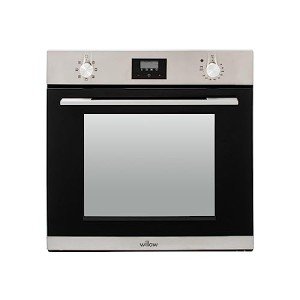Ten Built In Electric Ovens That Really Make Your Life Better
페이지 정보
본문
The Comprehensive Guide to Built-in Electric Ovens and Hobs
In today's hectic world, contemporary kitchen appliances have actually developed significantly to deal with the tastes and needs of modern homeowners. Among these appliances, built-in electric ovens and hobs stick out for their efficiency, style, and functionality. This article explores the features, advantages, installation ideas, and upkeep of built-in electric ovens and hobs, along with addressing regularly asked concerns.

Comprehending Built-in Electric Ovens
What Is a Built-in Electric Oven?
A built-in electric oven is a home appliance developed to be set up into a wall or kitchen cabinetry, supplying a seamless, best integrated oven uk appearance in the kitchen. Unlike freestanding ovens, built-in models save area and typically come geared up with additional features such as self-cleaning cycles, convection cooking, and different cooking modes.
Types of Built-in Electric Ovens
- Single Ovens: Ideal for smaller kitchens or those who prepare for fewer people.
- Double Ovens: Offer more cooking area, appropriate for larger households or those who amuse often.
- Combination Ovens: These consist of both a standard oven and built In Electric ovens a microwave, providing versatile cooking alternatives.
Advantages of Built-in Electric Ovens
| Benefit | Description |
|---|---|
| Space-Saving Design | Fits perfectly into kitchen cabinetry, freeing up counter area. |
| Improved Aesthetics | Creates a modern, professional kitchen look. |
| Versatile Cooking Options | Often features numerous cooking modes consisting of bake, broil, and convection. |
| Energy Efficient | Takes in less energy than standard ovens. |
Understanding Built-in Hobs
What Is a Built-in Hob?
A built-in hob is a cooking surface area set up into the kitchen counter top, incorporating effortlessly with the kitchen design. Readily available in electric, induction, and gas varieties, electric hobs are renowned for their precision and ease of use.
Kinds Of Built-in Hobs
- Electric Hobs: Traditional coil aspects that heat by means of electrical resistance.
- Induction Hobs: Use magnetic energy to heat just the cookware, making them quicker and much safer.
- Ceramic Hobs: Feature a smooth surface with convected heat beneath, offering easy cleaning.
Advantages of Built-in Hobs
| Advantage | Description |
|---|---|
| Fast Cooking Times | Electric hobs heat quickly, decreasing overall cooking time. |
| Easy to Clean | Flat surface area permits quick and straightforward cleaning. |
| Long lasting | Typically built to last and hold up against high temperature levels. |
| Versatile Compatibility | Works well with various pots and pans products. |
Installation Considerations
Installing a built-in electric oven and hob needs mindful planning.
Actions for Installation
- Procedure the Space: Ensure the measurements of the oven and hob match the designated space in your kitchen.
- Check Electrical Requirements: Consult an electrical contractor to ensure circuitry can manage the device's power requirements.
- Positioning of Appliances: Position the oven at a practical height, usually in between waist and eye level.
- Ventilation: Ensure proper ventilation, specifically if your oven includes a range hood.
Essential Tools
- Power drill
- Screwdrivers
- Level
- Determining tape
Safety Precautions
- Always detach the power before setup.
- Follow maker guidelines thoroughly.
- Think about employing an expert for electrical connections.
Upkeep Tips
Preserving built-in electric ovens and hobs is vital for longevity and efficiency.
Routine Care Routine
- Cleaning up the Surface: Use a soft fabric and manufacturer-recommended cleaner.
- Inspecting Electrical Connections: Check cables and plug for damages regularly.
- Cleaning up Filters: If the oven has a ventilator, clean or change the filters as required.
Repairing Common Issues
| Problem | Possible Solution |
|---|---|
| Oven Won't Heat | Check the power supply and heating aspect. |
| Heating Inconsistency | Examine the thermostat and oven calibration. |
| Hob Not Heating | Ensure pots and pans works and check the power supply. |
Frequently Asked Questions
1. How do I select the ideal size built in electric integrated ovens uk - click through the up coming website --in electric integrated oven and grill?
Picking the right size involves measuring your kitchen space and considering just how much cooking you usually do. If you amuse often or have a large family, select a double oven.
2. Are built-in electric hobs safe to use?
Yes, built-in electric hobs are safe, particularly induction hobs which only heat up the pots and pans, decreasing the threat of burns.
3. Can I set up a built-in oven and hob myself?
While it is possible for skilled DIY lovers, working with an expert is suggested, particularly for the electrical connections.
4. How often should I clean my built-in oven and hob?
Cleaning should be done regularly after use, with deep cleaning intervals depending on cooking frequency - normally every few months.
5. Do built-in appliances need unique maintenance?
Built-in appliances need comparable upkeep to freestanding models, but correct care must be taken with their surrounding cabinetry.
Built-in electric ovens and hobs provide a blend of technology and style, providing efficiency and modern-day aesthetic appeals to any kitchen. With appropriate choice, careful installation, and routine maintenance, these appliances can improve one's cooking experience for several years. Comprehending the functions, advantages, and care requirements can empower house owners to produce the kitchen of their dreams-- efficiently and stylishly.
As kitchen areas continue to evolve into central centers of the home, selecting the right built-in options plays a crucial role in everyday cooking imagination and pleasure.